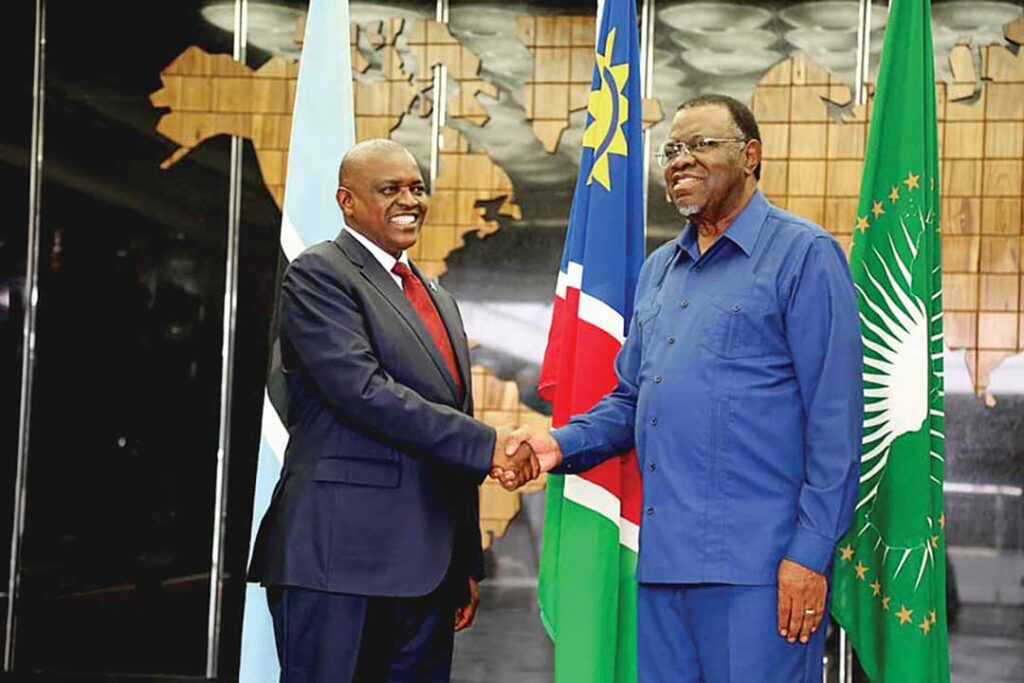ADF STAFF
Namibia and Botswana are looking to a new era in cooperation and have established a commission to that end.
The inaugural Botswana and Namibia Bi-National Commission first met in Gaborone, Botswana’s capital, in September 2022. Days later, the Namibian and Botswana governments agreed to abolish the requirement of passports for travel between the two countries. Instead, citizens of the two countries will use identity cards.
“Our two countries not only share a common border, but also a common people and heritage,” Namibian President Hage Geingob said, as reported by The Namibian. “A symbiotic and inter-dependent relationship exists along our common borders.”
The commission will focus on a wide range of issues of mutual interest, including politics and diplomacy, their economies, and defense and security matters.
The two countries, which share a 1,583-kilometer border, already have significant economic ties. The Observatory of Economic Complexity reported that, as of 2020, Namibian exports to Botswana were worth almost $500 million. Those exports included $300 million in diamonds, $131 million in refined petroleum and $33 million in electricity. In turn, News24 reported, Botswana’s main exports to Namibia have consisted of diamonds, insulated wire and charcoal.
Botswana and Namibia established diplomatic relations in 1990. Since that time, the two countries have had their differences, including a yearslong dispute over ownership of an island in the center of the Chobe River. In 1997, during an extended drought, Namibia tried to limit Botswana’s access to the Okavango River. And in 2020, Namibia condemned Botswana’s “shoot to kill” policy on poachers, when Botswana Soldiers killed suspected poachers of Namibian origin.

